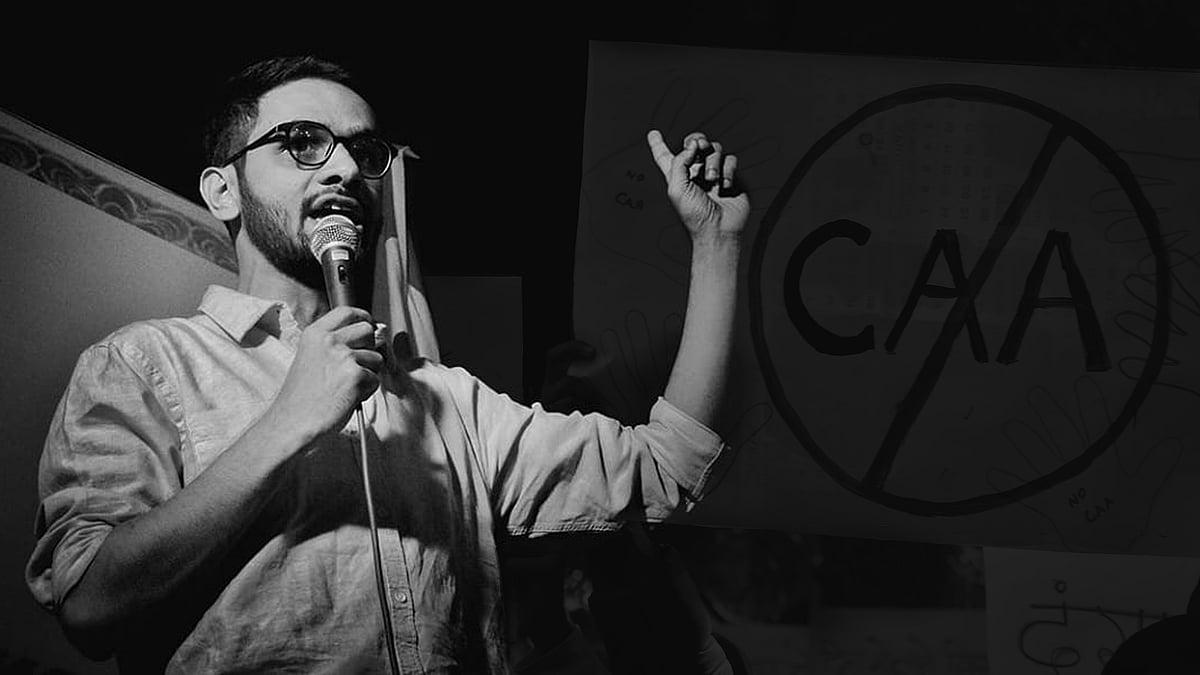How it happened: Delhi court sends Umar Khalid to police custody for 10 days
The Delhi police told the court that it needed to ‘confront’ Khalid over 11 lakh pages worth of data recovered from him.
A Delhi court today sent activist Umar Khalid to police custody for 10 days in a case related to the communal riots in Northeast Delhi in February. Khalid had been slapped with provisions of the draconian Unlawful Activities (Prevention) Act in April this year.
On September 13, Khalid, 33, was arrested by the Delhi police’s special cell under FIR 59/2020, which claims the activist purportedly made provocative speeches and hatched a premeditated conspiracy to execute the violence that killed 53 people. He has also been booked for rioting, sedition and murder under the Indian Penal Code.
Khalid also finds mention in other chargesheets — FIRs 65, 101 and 50 — filed during the riots probe.
On Monday evening, Khalid was produced before Additional Sessions Judge Amitabh Rawat for a patchy video conference that was ailed by connectivity issues. The former Jawaharlal Nehru University student leader seemed tired and made anxious inquiries about his counsel’s presence during the hearing.
Special public prosecutor Amit Prasad demanded 10-day police custody for Khalid. Prasad claimed that the police had acquired 11 lakh pages worth of data, for which the police needed to “confront” him.
Khalid’s counsel, Trideep Pais, was physically present at the court. He told Justice Rawat that the application submitted by the Delhi police did not even merit a day’s police custody. “It says he made provocative speeches at various places and appealed the Muslim minority community to gather and block roads,” Pais said. “Is it not incumbent upon them to say when did he speak and where did he speak?”
Pais brought up Khalid’s speech in Amravati in February this year, alleged to be “inciteful” by leaders of the governing Bharatiya Janata Party. “He said, ‘If they spread hate, we will respond to it with love,’” the counsel pointed out.
“What do they want from him in 10 days?” Pais asked. “Your Honour knows that this is a case where people have publicly spoken out that they were pressured to give statements against other accused, including this accused.”
The counsel added that there had been “hysteria” around Khalid and yet he had duly cooperated with the police investigation. “He [Khalid] was not present in Delhi during the riots...Your Honour, don’t indulge such kinds of applications which have no basis,” Pais said, adding that the prosecution had constantly denied material to the defence, citing sensitivity.
In response, Prasad pointed out that the lack of reasons in the police’s application was because under the UAPA, the sanctity of an investigation has to be maintained and disclosures are not stated. He added: “My limited request would be that there should not be very stringent restrictions because during investigation, he may have to be taken out somewhere for the purpose of investigation. That flexibility should be given to us.”
In his order, Justice Rawat said that given the investigation into Khalid’s links with “several radical groups/organisations” and the police’s demand for interrogation for “confronting the huge technical data”, “I deem it fit that, for having an effective and proper investigation to allow the present application for seeking police custody remand of the accused Umar Khalid for a period of 10 days.”
The court accordingly asked the police to produce Khalid before the court on September 24.
In an interview with Newslaundry days before his arrest, Khalid had said that the Delhi police did not have any evidence against him, and would eventually resort to inventing evidence. “The Delhi police’s investigation into the riots is a narrative-based investigation, not a fact-based investigation,” he said.
Apart from Khalid, several others who participated in the protests against the Citizenship Amendment Act and the National Register of Citizens have been booked under the UAPA. These include Pinjra Tod members Devangana Kalita and Natasha Narwal, Jamia Millia Islamia students Asif Iqbal Tanha, Safoora Zargar and Meeran Haider, Delhi University student Gulfisha Fatima, former Congress councillor Ishrat Jahan, president of Jamia Alumni Association Shifa-Ur-Rehman, suspended Aam Aadmi Party councillor Tahir Hussain, and activist Khalid Saifi.
***
The media must be free and fair, uninfluenced by corporate or state interests. That's why you, the public, need to pay to keep news free. Support independent media by subscribing to Newslaundry today.
 ‘There will be fake stories about me once I’m arrested’: Umar Khalid on riots probe and his imminent arrest
‘There will be fake stories about me once I’m arrested’: Umar Khalid on riots probe and his imminent arrest